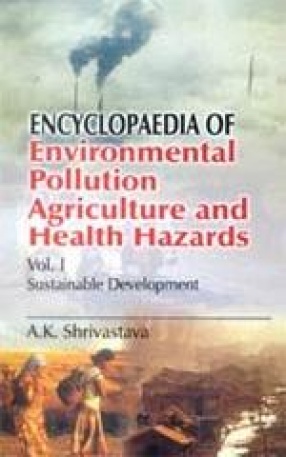I: This book sets out the actions that could transform the lives of hundreds of millions of people. In particular the poor people and make a planet a better and safer place for our children and their children. It spells out what needs to be done to achieve key targets for national development. Following a series of summit meetings held by the apex international organisations over the past twenty years, the developmental targets have been agreed by all the participant countries in relation of poverty reduction and sustainable development. The book introduced and discusses the targets for development in terms of economic well being. Social and human development, environmental sustainability and regeneration, scope for achieving the development targets, the seven habitat agenda commitments, the impact of urbanization, rural and urban livelihoods, institutional and political challenges, effective local and national action, e.g. population stabilisation-nutrition, water and sanitation, health, women-children and old aged person’s protection, mechanism for development initiatives, guiding principles or strategy and its priorities. II: The objectives of this presentation is to reassessing the environmental assessment of India and with a hope that this will be helpful into chart a course for improving environmental quality India in coming decade, particularly over the period covered by the government’s five year plan, who are directly engaged in day sustainable development and have first hand the ground. It summarises the current environmental conditions, land-forest and biodiversity, the challenges of the new millennium, strategic priorities, Instruments, investments, towards environmental quality, natural resource management, water resource management and water pollution trends, air pollution control, ambient air quality trends, acid deposition, key air pollution issues, environmental management with lessons-tasks before the government, responsible funding agencies. This book will be helpful to apex foreign funding agencies having mandate to improve and better core mission of social development and poverty alleviation. This book may be a practical guide with an opportunity to learn from India’s practical experience. And, one can help India on the way to sustainable development. III: This vol. Spells out the implicit linkage between environment and non-violence. It explains the adverse effects of violence on environment and also on ongoing processes of sustainable development. It includes war between the countries, terrorism, crime, violence against women and girls or children, domestic violence, cruelty against animals, violence against geo-biodiversity, natural and man-made disaster of large. It discusses the cost of war, terrorism, violence, crime or destructive that forces to divert the developmental action to emergency assistance and there are evidences when the resources for emergency aid have fallen short of propels needs. The fund allocation and the available for long term development have been and other violence. It also addresses about the ecological unbalance and loss of environment in terms of global warming, ozone depletion, heaviest and hazardous pollution in the society hidden killers from the international development agendas, epics and broadly accepted religious books of different community. Violence against the country, against the society or against the community is the most pervasive violation of not only the human rights but also to environmental norms in the world today and its forms both subtle and blatant and its impact on development profound. This book suggest the ways to control the violence for the sake of environment and for maintaining peace and also for ensuring better quality of man’s as well as organism’s life.
Encyclopaedia of Environmental Pollution Agriculture and Health Hazards (In 5 Volumes)
In stock
Free & Quick Delivery Worldwide
reviews
Bibliographic information
Title
Encyclopaedia of Environmental Pollution Agriculture and Health Hazards (In 5 Volumes)
Author
Edition
1st ed.
Publisher
ISBN
8176485942
Length
xi+451p., xi+345p., xi+466p., xiv+432p., xi+435p., Tables; Appendices; Index; 23cm.
Subjects




There are no reviews yet.